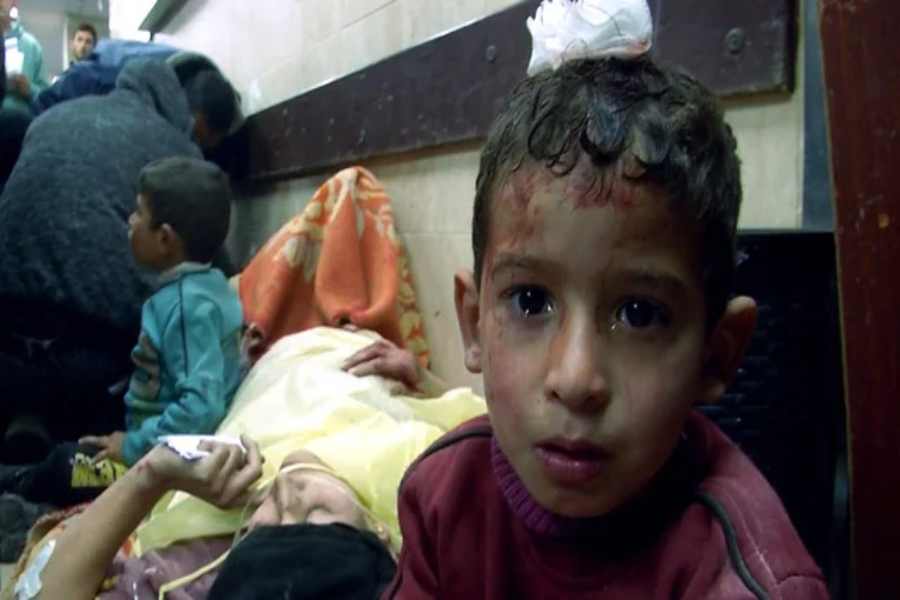An overnight Israeli airstrike on a Gaza City school sheltering displaced civilians killed at least 10 people and injured dozens more, Gaza health officials said Wednesday. The strike set several makeshift tents ablaze, burning people alive, and added to the mounting civilian toll as Arab mediators worked urgently on a new proposal to end the months-long war between Israel and Hamas.
The Israel Defense Forces did not immediately comment on the strike but reiterated that it targets only Hamas militants and blames civilian casualties on the group’s practice of operating within densely populated areas. Meanwhile, Gaza’s Civil Defense said it recovered four more bodies from strikes on two homes nearby, and a separate strike east of Gaza City killed 5-year-old twin girls, according to the Hamas-run Gaza Health Ministry.
The latest bloodshed comes amid deepening international outrage over Israel’s tightened blockade of Gaza. France, Germany, and Britain issued a rare joint statement condemning Israel’s continued restrictions on food and humanitarian aid as “intolerable.” Aid groups say thousands of Gaza’s children are suffering from severe malnutrition, with most civilians now surviving on one meal a day or less. Israeli officials dismissed the criticism, insisting Hamas is hoarding aid and that shortages are exaggerated.
Amid worsening conditions, Egypt and Qatar are advancing a new truce proposal that would establish a five-to-seven-year ceasefire, oversee the gradual withdrawal of Israeli forces, and include the release of all remaining hostages held by Hamas. According to officials involved in the negotiations, the plan would place Gaza under the interim administration of politically independent technocrats, backed by international guarantees possibly involving Russia, China, Turkey, or the United Nations Security Council.
While Hamas has indicated preliminary acceptance of a long-term ceasefire under these terms, it insists on a complete Israeli withdrawal and permanent lifting of the blockade. Hamas officials, speaking anonymously due to the sensitivity of negotiations, expressed skepticism about trusting Israeli Prime Minister Benjamin Netanyahu’s government and the U.S. after the collapse of the previous truce deal.
Israel has yet to formally respond to the new plan. Officials maintain that any arrangement allowing Hamas to survive politically or militarily is unacceptable. U.S. officials, including the Trump administration, have strongly backed Israel’s position. Mediators believe there is growing urgency, as former President Trump is preparing to visit Saudi Arabia, Qatar, and the United Arab Emirates between May 13 and May 16, and a diplomatic breakthrough before his trip would be politically advantageous.
Adding emotional pressure on Israel’s leadership, Hamas released another hostage video on Wednesday showing 48-year-old Omri Miran, an Israeli-Hungarian citizen, pleading for a deal. Addressing the Israeli public directly, Miran acknowledged the rising protests demanding action from Netanyahu’s government and called for an immediate agreement to secure the hostages’ release. Israeli officials have warned that such hostage videos are produced under duress, but the growing visibility of the captives’ suffering has fueled public anger at home.
The war, now dragging into its seventh month, erupted after Hamas-led militants stormed southern Israel on October 7, 2023, killing about 1,200 people, mostly civilians, and taking 251 hostages. Israel claims that 59 hostages remain in Gaza, though it believes only 24 are still alive.
Since then, Israel’s military campaign has devastated Gaza. According to Hamas-run health authorities, over 51,000 Palestinians—mostly women and children—have been killed, while Israel claims that roughly 20,000 Hamas militants have been eliminated, though it has not provided independent evidence. Israel’s forces now control about half of Gaza’s territory, having expanded a militarized buffer zone and encircled the southern city of Rafah.
Israel argues that its tightened military operations and blockade are necessary to pressure Hamas into releasing hostages and dismantling its operational capacity. Critics warn that the humanitarian catastrophe now unfolding in Gaza could trigger a wider regional backlash and irreparable long-term harm to Israel’s standing internationally.
As mediation efforts intensify, the fate of Gaza’s civilians — and the future of any fragile truce — hangs precariously in the balance.
